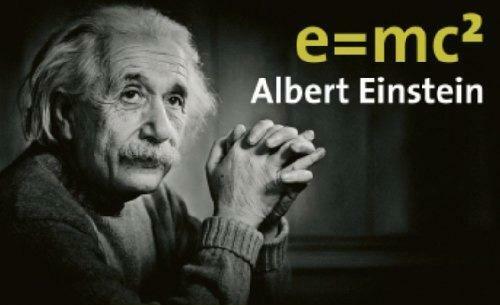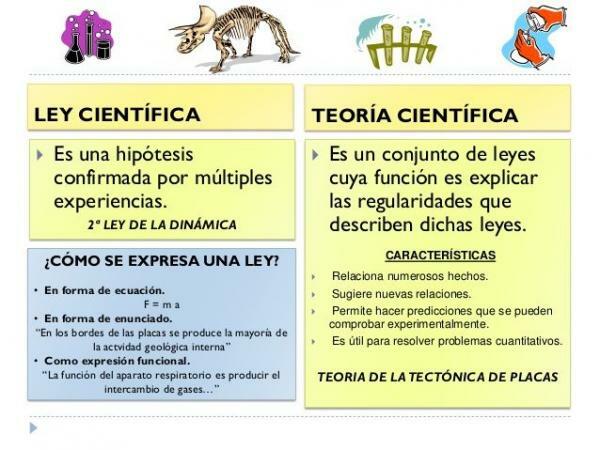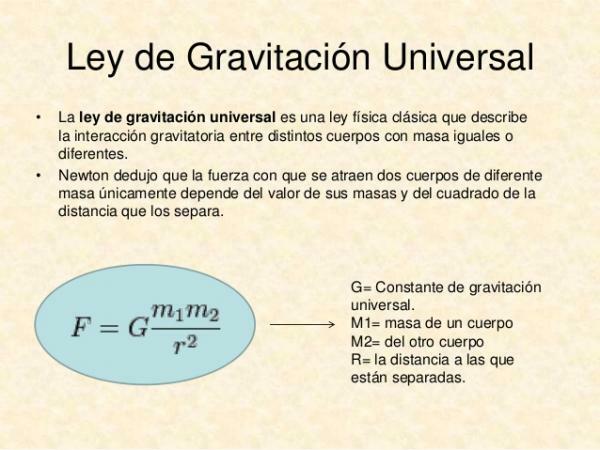The most important SCIENTIFIC LAWS and THEORIES

Image: The Mad Physicist
The scientific laws they are scientific phrases or propositions that relate two events, usually through a mathematical equation (such as E = mc²). Scientific laws are statements that are based on observations and empirical data and whose validity is determined. It is usually limited to a series of conditions (such as that "c" is the speed of light in the empty). But What are the most important scientific laws and theories? In this lesson from a PROFESSOR we solve your doubts in this regard so that you can know them.
Index
- Difference between laws and scientific theories
- Top 10 scientific theories and laws
- Big Bang Theory
- False scientific theories
Difference between laws and scientific theories.
The terms theory and scientific law are often used interchangeably, but in reality they do not mean the same thing.
- The theories They try to synthesize a set of observations or evidence of a particular phenomenon within a synthetic and organized situation, that is, with certain conditions. It is an affirmation of how nature works and operates, and not in all cases can a theory be reduced to a simple sentence or equation. A well-known example of theory is Charles Darwin's theory of evolution; Darwin, from his investigations, measurements, observations and abstractions from him, compiled all that knowledge in a series of statements that go from the common origin from species to the well-known idea of natural selection, going to how new traits appear in animals, how they disappear, how new species are formed, etc.
- Instead, scientific laws They are rules or patterns that express the relationships between the observations of these concepts and what we can expect to be repeated in systems with the same characteristics and conditions. They are usually expressed in the form of a statement, with mathematical or logical language. A well-known example is Hooke's law of elasticity which postulates that if an object, such as a spring, is elongated up to a distance x, the restoring force F exerted by the object is proportional to x. Or put another way: "F = -kx".
Both theories and laws depend on basic elements of the scientific method, such as the experimental evaluation of the premise, the generation of a hypothesis, the collection of empirical data, or the creation of a conclusion.

Image: Pinterest
Top 10 scientific theories and laws.
We are already beginning to talk about the most important scientific laws and theories. You've probably ever come across some scientific law or theory, but have you ever asked which are the most important and which have had the greatest impact on the development of the science? Here we leave you a list of the 10 scientific theories and laws which, in our opinion, have been more important for the development of many sciences such as physics, chemistry, biology or mathematics:
- The big Bang Theory wave creation of the world according to science
- The hubble's law of cosmic expansion
- The Kepler's laws planetary motion
- The Newton law of Universal Gravitation
- The theory of evolution by Darwin's natural selection.
- The theory of relativity Einstein.
- The laws of the thermodynamics
- The principle of buoyancy Archimedes
- The principle of uncertainty by Heisenberg
- The laws of motion Newton's
If you want to know more about any of them, we invite you to consult the lessons of a PROFESSOR dedicated to them or that you leave a comment letting us know which one you are interested in that we try in a future.

Big Bang Theory.
We start with one of the most important scientific laws and theories: big Bang Theory what maybe it is the best known scientific theory around the world. It is used to explain the origin of the universe, and it is the most accepted by all scientists. According to this theory, the universe originated 14 billion years ago with a big bang (a great "Bang") and from there space, energy, time and matter were created.
Everything that surrounds us, absolutely everything, is constituted thanks to the matter formed by the Big Bang. From the hydrogen in water to the minerals that make up the rocks of our planet. Of course, this also encompasses all the matter that gave rise to us, living beings. In this other lesson we offer you a summary on theories of the origin of life so that you know the different ideas of how, from the matter created in the Big Bang, researchers believe that living beings come to appear.

Image: Astroverada.com
False scientific theories.
Scientific knowledge is continually evolving and we have more and more tools and knowledge that help us understand the world around us. That is why, some theories that are accepted for years, then it is found that they weren't true.
It is important to know how to recognize these theories since, although they are not true, they can be based on observations and valid knowledge that can lead to very valid and correct conclusions (theories and laws). Among the scientific theories that have been proven false, some examples stand out, such as the following:
- Theory of spontaneous generation
- Earth in continuous expansion
- The Martian canals
- Theory of the static universe
- The cold fusion of Fleischman and Pons
A clear example of a scientific theory that was believed to be true at the time but later confirmed to be false was the teory of spontaneous generation. This theory was one of the best known and accepted of the seventeenth and eighteenth centuries, since it had Aristotle as its main exponent and thinkers such as Descartes, Francis Bacon or Isaac Newton in its defense.
This theory ensured that life occurred from one moment to the next and without the need for fertilization, eggs, seeds or any other known reproductive system. This thought dominated Western science for several years, something that today would be impossible to believe anywhere in the world due to the knowledge and tools we have at our disposal provision.
If you want to read more articles similar to The most important scientific laws and theories, we recommend that you enter our category of Story.
